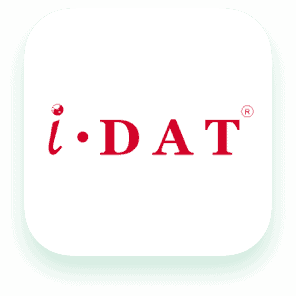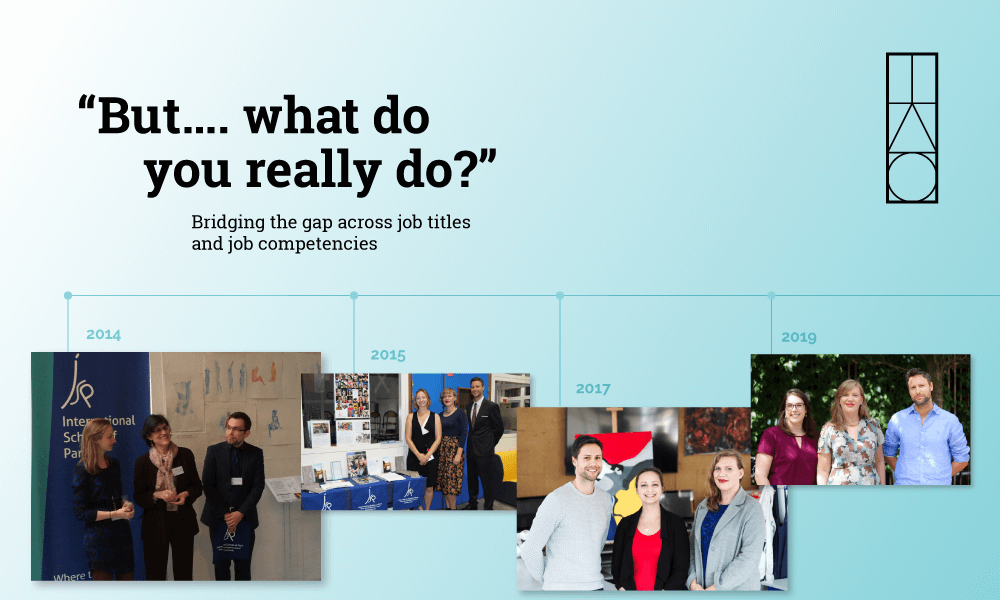Bridging the gap across job titles and job competencies.
Ever since I’ve been in the working world, it’s been a bit of a joke that no one really knows what it is I do. After university, I worked in the fixed income commercial mortgage backed securities sector, then moved to real estate backed credit risk analysis at a hedge fund. Friends and family contented themselves to note simply that I worked at the stock exchange (nothing could have been further from reality).
Fast forward to 2012 when I embarked on a new career within the International School of Paris. Without knowing exactly where it would lead (and there have been plenty of twists and turns over the past seven years), I had unwittingly joined another black hole of “what is” job descriptors – Admissions.
From my naive, outside perspective, being part of the admissions department at a school seemed rather straightforward. Yet, very quickly I realized that my understanding of the role (and all the sub and sub sub layers of what we actually do in this sector) and many of my teaching colleagues’ impressions were quite different. They weren’t patronizing or rude, but it seemed that once you step outside the purvey of pedagogy in a school, people somehow have a harder time understanding what it is you really do….and, without knowing or meaning to, subtly call into question the impact your department has on the day to day running of the institution. I mean, we’re not changing lives each day… or are we?
I’ve been to many admissions job a likes and conferences over the years and remember quite significantly that day at one of my earliest sessions when our workshop leader asked each of us to simply write down our job title. Then she asked us to write in a sentence what we felt we really did.
It was inspiring and inspirational to hear from tens upon tens of my international admissions colleagues what they felt they incarnated in their roles in Admissions – expert communicators, data analyzers, email mavericks, human connectors, detail and organizational wizards, spokespeople, friends, support nets, the school’s institutional memory. That day and many others since have offered a huge sense of relief when I am sharing amongst my “people” – people who inherently know what it’s like to pore over one email or phone call for way too long because you’re weighing the choice of every word, who’ve held hands during sensitive and emotional moments with individuals you’ve only barely just met, who’ve been emailed/called/emailed/ called/emailed again in the span of 5 minutes by one nervous family, who’ve had months of work reduced to one seemingly innocuous question from management – “How are our numbers?”
It’s no wonder that the admissions/ enrolment management profession has left in its wake over recent years countless talented individuals who fell into our “accidental profession” and then ultimately decided to fall out again because of some of the inherent tensions in a job that is constantly seeking more (oftentimes with less). These are the secrets unwittingly locked away by admissions officers and staff too humble to scream from the rooftops what is and isn’t working, who often don’t have a seat at the leadership table or enough resources to share the workload, and who are wrongly, but too often, viewed as a positive, but not game changing add on to an already functioning pedagogical ecosystem.
I have had two great strokes of luck in my time thus far in Admissions. From my first day as an Admissions Assistant, returning to the workforce following my maternity leave, through to today in my role as Director of Advancement and part of the school leadership team, I have had the privilege to work in a team of highly motivated admissions rockstars – people who have rounded out my sharp edges whilst also motivating me to sharpen my duller competencies. In short, I was surrounded by, then actively chose to, recruit highly talented people who, above all, are incredibly emotionally intelligent and multi dimensional humanists. Two qualities that are essential in a job where seeing the fine line and infinitely retracing it is a tool of the trade.
Secondly, I entered an organization where others before me in admissions had already blazed a trail of “why” admissions is important to senior management, so we were given support (and the necessary latitude) to fly on our own talent and wings.
Yet, as school rounded to a close this year (as with every year), I found myself partaking in more than a few quippy conversations and email exchanges with colleagues where I felt the need to defend what I feel Admissions actually does. You see, in the absence of truly understanding the multi layered ecosystem of how many of our international schools operate, there seems to be a thought that admissions professionals wave a wand and either “Poof!” achieve their budget or “Poof!” do not. That when there is a particularly challenging file, or grade, or enrolment year, that we somehow steered the boat in that direction, and can immediately steer it back again. I have been finding these annual misconceived conversations to be a bit frustrating, so I asked our Head this year if I might be able to provide some PD to the whole staff (and new staff during induction week) on the question of what Admissions (and, more globally Advancement) does at ISP – our strategic annual plan, our guiding statements, our team values. He agreed, and I am looking forward to diving a bit deeper with my colleagues before term begins regarding these types of questions.
In the meantime, I have found it quite useful to engage in the process of writing our own team mission statement: Admissions at ISP is the person behind the page, the explanation behind the idea and an open contact for a lifetime.
I look forward to hearing yours!
















 All Services
All Services


